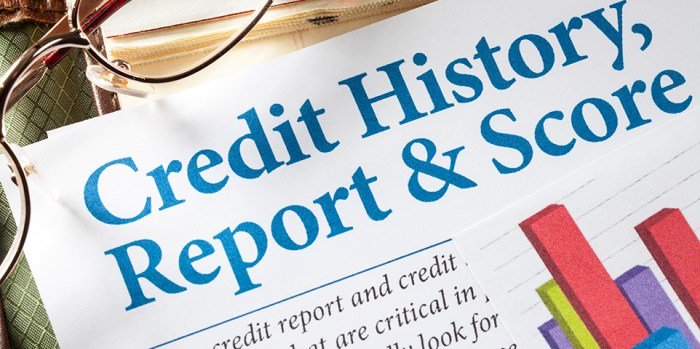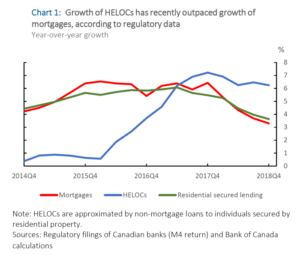
Welcome to the wild and wacky world of Credit history, where numbers dance and scores prance! Ever wondered how your past spending habits could make or break your financial future? Buckle up, because we’re diving headfirst into the credit score saga—a tale filled with ups, downs, and a few unexpected plot twists!
Credit history isn’t just a boring collection of old debts; it’s the magical scroll that lenders consult when determining if you’re worthy of that shiny new loan. From payment history to credit inquiries, let’s explore what makes your score tick and how you can be the superhero of your financial narrative!
Credit History Overview
Credit history is the financial equivalent of your dating history—full of ups, downs, twists, and turns that reveal a lot about your character. Just as a potential partner might check your history to gauge your reliability, lenders scrutinize your credit history to determine your trustworthiness. A solid credit history is crucial for obtaining loans, mortgages, and even favorable interest rates.
With a good credit score, you can float like a butterfly through the financial world, while a poor score can sting like a bee!The importance of credit history in personal finance cannot be overstated. A strong credit history not only improves your chances of loan approval but also enables you to negotiate better terms on credit products. Factors that impact an individual’s credit score include payment history, amounts owed, length of credit history, new credit inquiries, and types of credit used.
Each of these components plays a distinct role in determining your overall creditworthiness, like ingredients in a delicious financial stew.
Factors Impacting Credit Score
Understanding the components that contribute to your credit score is essential for maintaining a robust financial reputation. Here’s a breakdown of the key elements:
- Payment History: Your history of on-time payments significantly impacts your score. Imagine a superhero cape made of timely bill payments, protecting you from the evil clutches of bad credit!
- Amounts Owed: This factor considers your credit utilization ratio—how much credit you’ve used versus how much you have available. Keeping this number under 30% is like staying on the right side of the credit scale.
- Length of Credit History: The longer your credit accounts have been active, the better. Think of it as a vintage wine; the older it gets, the more valuable it becomes!
- New Credit Inquiries: Each time you apply for credit, a hard inquiry can slightly ding your score. Too many at once are like trying to squeeze into your favorite pair of jeans after the holidays—painful and regrettable.
- Types of Credit Used: A diverse mix of credit types (like credit cards, mortgages, and installment loans) can show lenders you’re a well-rounded financial individual, not just a one-trick pony.
Obtaining and Interpreting a Credit Report
Getting your credit report is as easy as pie, but interpreting it can feel like trying to understand Shakespeare without a translator. Start by visiting websites that offer free annual credit reports, such as AnnualCreditReport.com. Checking your report regularly is like giving your financial health a routine check-up.Once you have your report, here’s how to interpret its details:
“A credit report is a detailed summary of your credit history, including your payment habits, outstanding debts, and any public records related to your financial behavior.”
Your credit report will typically include:
- Personal Information: Your name, address, Social Security number, and employment history—a sneak peek into your financial life.
- Credit Accounts: A list of your open and closed accounts, including payment history and credit limits. This section is where your financial personality shines!
- Public Records: Bankruptcies, foreclosures, or civil judgments. These are the financial skeletons in your closet, and they can haunt your score for years.
- Inquiries: A record of who has checked your credit report. Too many inquiries can raise red flags, so be sure to handle applications with care.
Understanding your credit report is crucial for maintaining a healthy credit history. If you notice any errors, take action immediately! Disputing inaccuracies is not just your right—it’s your duty as a financially savvy superhero!
Managing Your Credit

Maintaining a positive credit history is not just a quest for a shiny credit score; it’s akin to nurturing a pet goldfish. You have to keep an eye on it, feed it regularly, and ensure it has a clean bowl to swim in. Your credit report is that bowl, and with just a sprinkle of discipline and a dash of strategy, you can keep your credit history swimmingly fabulous.To embark on this credit-managing adventure, it’s essential to understand the various aspects that can make or break your score.
Whether it’s paying bills on time or seeking help from a credit counselor, each step contributes significantly to the overall health of your credit report. Let’s dive into the nitty-gritty of it, shall we?
Tips for Maintaining a Positive Credit History
It’s important to adopt healthy habits that can boost your credit score and keep it from sinking like a stone. Here are some effective strategies to keep your credit history in tip-top shape:
- Pay bills on time: Late payments can be a credit score’s worst nightmare. Set up reminders or automate your payments to avoid any slip-ups.
- Keep credit card balances low: Aim to use less than 30% of your available credit. Think of it as keeping your fridge stocked, but don’t let it overflow!
- Avoid opening too many new accounts: Each credit inquiry can ding your score. Like trying to juggle too many things at once, it rarely ends well.
- Regularly check your credit report: Mistakes happen! Keeping an eye on your report can help you catch errors before they become a big deal.
The Role of Credit Counseling in Improving Credit Scores
Credit counseling can be a game-changer for those looking to boost their credit scores. Think of it as hiring a personal trainer for your financial fitness. Credit counselors provide guidance and strategies to manage debt effectively while helping you navigate the often murky waters of credit scores. They offer services such as budgeting advice and personalized debt repayment plans. By evaluating your financial situation and creating a roadmap, they can help you avoid pitfalls and make more informed decisions.
A well-planned approach can lead to improved scores over time, equipping you with the tools to build a robust credit history.
“Credit counseling is like a GPS for your finances; it helps you find the best route to your credit goals.”
How Debt Consolidation Can Affect Credit History
Debt consolidation might sound like a superhero cape for your finances, swooping in to save the day by merging multiple debts into one. This strategy can simplify payments and potentially lower your interest rates. However, it’s essential to understand its impact on your credit history.When you consolidate, you pay off existing debts, which can cause a temporary dip in your credit score.
But fear not! Once those pesky debts are settled and you maintain your payments on time, your score can rebound, often higher than before. The key is to resist the temptation to rack up new debt after consolidating. Your credit history will thank you for it!
“Consolidation might feel like a credit rollercoaster, but buckle up; the ride can lead to a more stable score!”
Financial Strategies Related to Credit

Navigating the world of credit can often feel like trying to assemble a piece of IKEA furniture without the instructions—confusing, frustrating, and potentially leading to a pile of spare screws (or debt). However, armed with the right financial strategies, you can turn that labyrinth of credit into a clear pathway of opportunity. Here are some effective strategies to manage your credit and make the most of what it offers.
Utilizing Home Equity Loans Responsibly
Home equity loans can be a double-edged sword; used wisely, they can slice through financial burdens, but wielded carelessly, they can lead to a disastrous cut. The equity in your home can be tapped into for various expenses such as home renovations, debt consolidation, or even that dream vacation (just remember to come back). However, as you contemplate borrowing against your home, consider the following aspects to ensure you’re on the right track:
- Borrow Wisely: Only take out a home equity loan if the benefits outweigh the risks. Evaluate whether the investment will yield a return greater than the cost of the loan.
- Understand Your Rate: Interest rates can vary; ensure you understand whether you’ll be facing fixed or variable rates. A variable rate may seem appealing until it skyrockets!
- Repayment Terms: Know the repayment period. A longer term may lower monthly payments, but it could cost you more in interest over time.
- Impact on Credit: Using a home equity loan can impact your credit score. A good payment history can boost your score, while defaults can lead to a nosedive.
Benefits and Risks of Leases and Leasing Options
Leasing can be like borrowing your neighbor’s lawnmower: it’s handy and saves you the hassle of ownership, but there are strings attached. Leasing options, whether for cars, equipment, or even apartments, come with their own set of benefits and risks. It’s crucial to weigh these carefully before making a decision.
- Lower Monthly Payments: Typically, leasing requires lower monthly payments compared to buying outright, making it accessible for many.
- Up-to-Date Technology: Leasing allows you to drive the latest models or use the newest equipment without a long-term commitment.
- No Depreciation Worries: When you lease, you’re not responsible for the car’s depreciation; you simply return it at the end of the lease term.
- Potential Hidden Fees: Be wary of those pesky lease-end fees or mileage limits that can catch you off guard. Read the fine print like it’s the last chapter of a mystery novel.
Strategies for Debt Relief and Their Impact on Credit History
Debt relief strategies can feel like a financial lifeline, rescuing you from the clutches of ever-increasing debt. However, not all rescues are created equal, and some can leave you with a not-so-happy credit score. Here are some common strategies and their potential ramifications:
- Debt Consolidation: Combining multiple debts into a single loan can simplify payments and potentially lower interest rates. However, if you rack up more debt after consolidation, you might end up in a worse position.
- Credit Counseling: Professionals can help negotiate lower payments with creditors. This can improve financial literacy but may temporarily lower your credit score.
- Bankruptcy: While it can provide a fresh start, bankruptcy can severely impact your credit history for up to ten years. It’s a last resort, akin to using a sledgehammer to fix a leaky faucet.
- Debt Settlement: Negotiating a lump-sum payment for less than the total owed can provide relief, but it might affect your credit score negatively as accounts marked as settled can appear less favorable.
Conclusive Thoughts
And there you have it—a thrilling ride through the ins and outs of Credit history! Now that you’re armed with knowledge, you can navigate this financial rollercoaster like a seasoned pro. Remember, keeping your credit score healthy is not just about avoiding pitfalls; it’s about grabbing life by the reins and making smart choices!
FAQ Overview
What is a credit report?
A credit report is a detailed summary of your credit history, including accounts, payment history, and any outstanding debts. Think of it as your financial resume!
How often should I check my credit report?
You should check your credit report at least once a year to ensure everything is accurate and to catch any potential identity theft early.
Can I improve my credit score quickly?
While there’s no magic wand for instant improvement, paying down debts, making on-time payments, and keeping credit card balances low can help boost your score faster than you can say “credit card!”
Does checking my own credit report hurt my score?
Nope! Checking your own credit report is considered a “soft inquiry” and doesn’t affect your score. So feel free to check away!
What’s the difference between a credit score and credit history?
Your credit history is the detailed record of your borrowing and repayment activities, while your credit score is a numerical representation of that history, summarizing your creditworthiness in a single digit.





